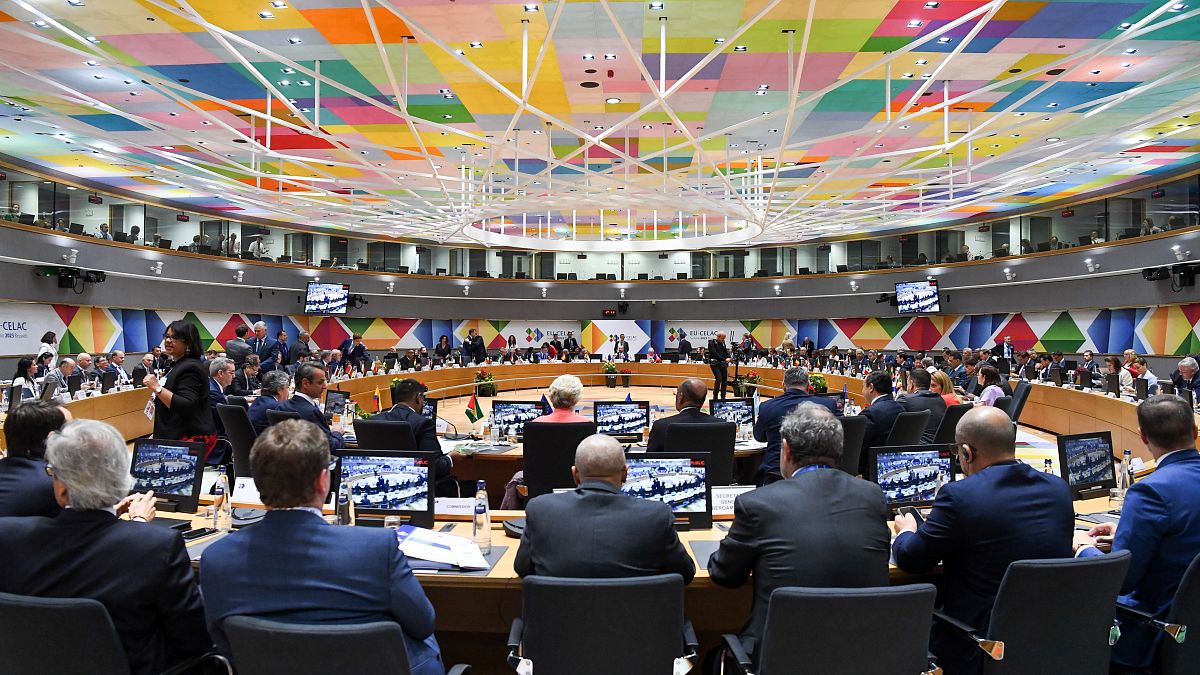The meeting is the first of its kind in eight years.
As leaders from across the Latin American and the Caribbean world descend on the Belgian capital both Monday and Tuesday, European heads of state and government are expected to admit their lack of "attention" paid to the region in recent years and turn a new page on relations.
The EU's High Representative for Foreign Affairs, Josep Borrell, was the first to acknowledge this fault on Monday, as more than 50 leaders turned up for the EU-CELAC summit.
"Since we were natural partners, we didn't pay enough attention, this is the reason. Europeans didn't pay enough attention to the Latin Americans," he said in Brussels.
"And now we have to react and take into account the new geopolitical scenario, with the emergence of China and the new role of Russia. We have to express and show, not only concern, but engagement."
After eight years without any high-level summits, Europe wants to regain influence in the region, realising that the war in Ukraine has changed the rules of the game when it comes to geopolitics. China has also been massively investing in the region, something Brussels is looking to counter.
But beyond trade, several debates have opened up on the final wording of the summit conclusions.
Latin American countries would like to see some kind of reference to the colonial past, as well as reparations for the transatlantic slave trade, as the President of CELAC and Prime Minister of Saint Vincent and the Grenadines, Ralph Gonsalves, explained.
"I'm very hopeful we will see a paragraph in the declaration addressing the historical legacies of native genocide and enslavement of African bodies," he said on Monday.
"And something towards reparatory justice."
There is also controversy around how to refer to the war in Ukraine.
There are different views on either side of the Atlantic, as well as among Latin American countries.
"We want, on both sides, an ambitious text and it is way there are some discussions still ongoing on the draft communiqué," Charles Michel, President of the European Council, said.
"On Ukraine one thing is clear: the vast majority of the Latin American countries decided to condemn Russia and it was translated in several votes in the General Assembly of United Nations."
During the UN vote, there were those that condemned the invasion, those that kept a more neutral stance and those who aligned with Russia.
Finding a common language that includes all these views will prove difficult.
